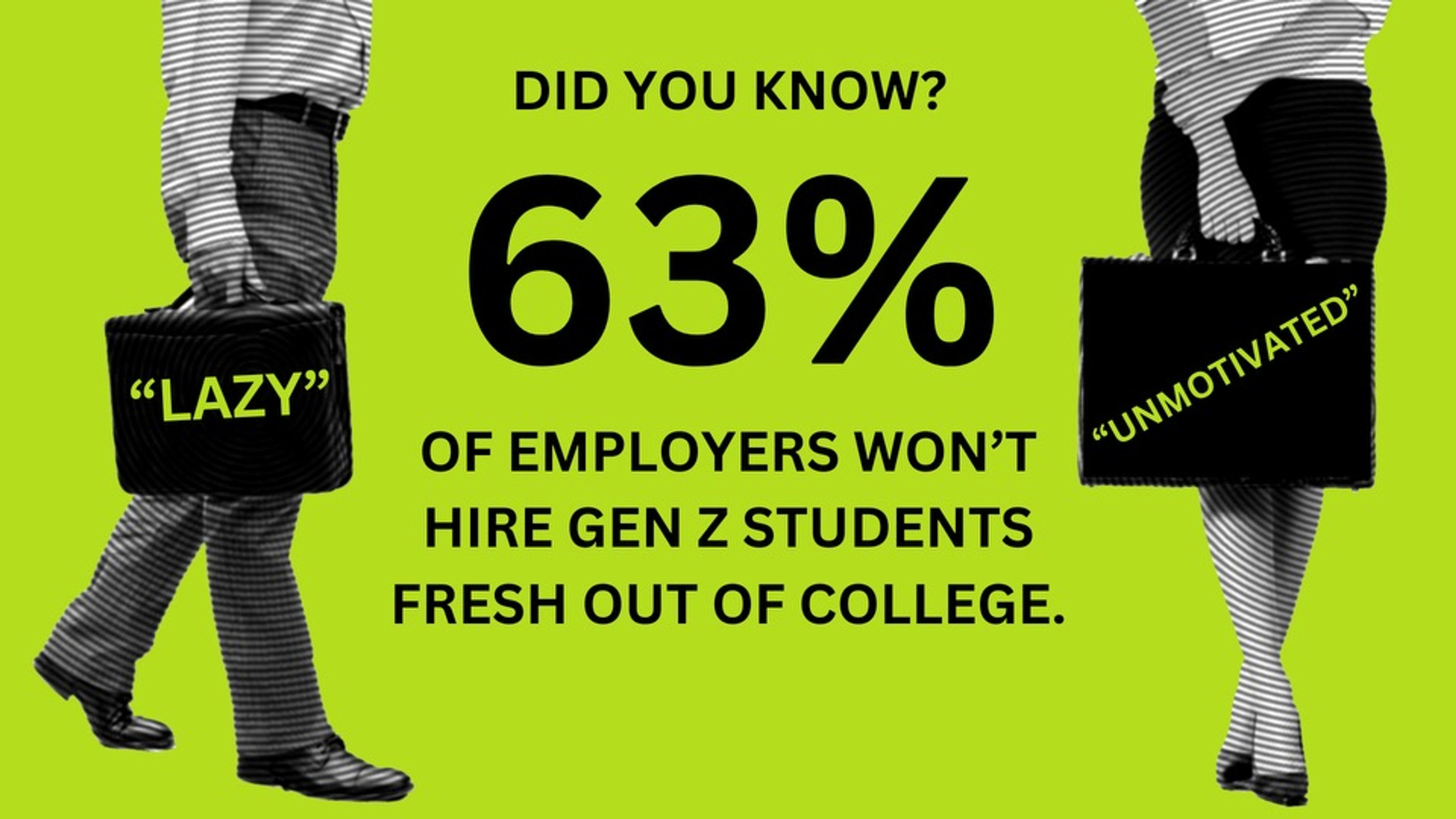Overcoming the Gen Z hiring hurdle: Strategies for career readiness and success
Gen Z faces hiring challenges as 63% of employers hesitate to hire fresh graduates. Discover strategies to boost career readiness and success, including experiential learning and skill development.
The application for graduation deadline is fast approaching, and for many seniors, it’s time to start sending in resumes and applying for jobs. The job search may face new setbacks, though, as a study by Intelligent found that 63% of employers now say they do not want to hire Gen Z students fresh out of college.
The Study
Intelligent.com surveyed 800 managers, directors, and executives who are all involved in the hiring process at their respective companies. Nearly half have reported that they had to fire a recent college graduate.
The study found that 38% of employers actively avoid hiring graduates fresh out of college in favor of older and more experienced candidates and 39% said they have a preference for older hires when filling roles. The companies are offering more benefits (60%), higher salaries (59%), and allowing remote work (46%) in an effort to attract non-Gen Z employees.
A key challenge for many Gen Z graduates entering the workforce is job interviews. The study found that one in five employers reported that recent graduates were underprepared in interviews.
53% of employers said that Gen Z interviewees had poor eye contact, 50% said they had unreasonable salary expectations, 47% reported that the interviewees wore inappropriate attire, 21% reported that candidates refused to turn their cameras on during virtual interviews and 19% of candidates were reported to have brought their parents to job interviews with them.
For the Gen Z employees who were hired, many struggled in workplace environments. Difficulty managing workloads (63%), frequently being late to work (61%), missing deadlines (59%), frequently being late to meetings (53%), acting entitled (63%) and being sensitive to feedback, having unprofessional behavior and poor communication skills (57%) are some of the key issues employers reported their Gen Z employees to have.
A Professor's Point of View
Instructor in the Department of Mass Media Michael Simmons found this study and sees this as an opportunity to better prepare his students for the workforce.
Simmons said if employers are saying three-fourths of candidates are not working out because they are not work-ready. First you have to look at what the problems are.
“The problems cited were a lack of motivation, a lack of initiative, that recent grads were unprofessional. They didn’t know how to operate in a work environment amongst other working professionals. They’re not organized, have poor communication skills, are reluctant to pick up a telephone and make a call….not being prompt in business, not understand appropriate business stress in different environments and inappropriate language,” Simmons said.
Using that list, Simmons looks for ways to use this in his classroom while helping his students gain real work experience so they can avoid being a part of the statistic.
“That was a list we can attack. That's intelligence that we can take and we can work on then. So once I found that I thought, Okay, what do we do in our department at our university? What can we do with our students? What can students do? What can I do to leverage that information so that my students aren't in that three-quarter group?
Simmons said that it's important for students to use college as a time to gain work experience and build a catalog of work that they can show someone. If students don’t approach their classes like work, then they will not be work-ready, but if they get involved in student organizations and do the work of the career path they want to do post-graduation, that is valid work experience.
SEMO’s Strategies
Southeast Missouri State University (SEMO) has many strategies in place to help prepare students for the workforce post-graduation.
The Department of Career Services states that its goal is to help students become independent and career-ready professionals. They offer assistance with choosing and changing majors, internship and job search assistance, resume and cover letter help, mock interviews, presentations and annual career expos.
SEMO also incorporates experiential learning into its curriculum in every department. SEMO stated that its goal is to prepare students so that when they graduate, they are competitive and confident job applicants. SEMO states that experiential learning is a necessity in achieving this.
The University also offers workforce development courses. SEMO stated that the courses cover leadership, problem-solving skills, written communication skills, analytical/quantitative skills, verbal communication skills, interpersonal skills, computer skills and technical skills.







